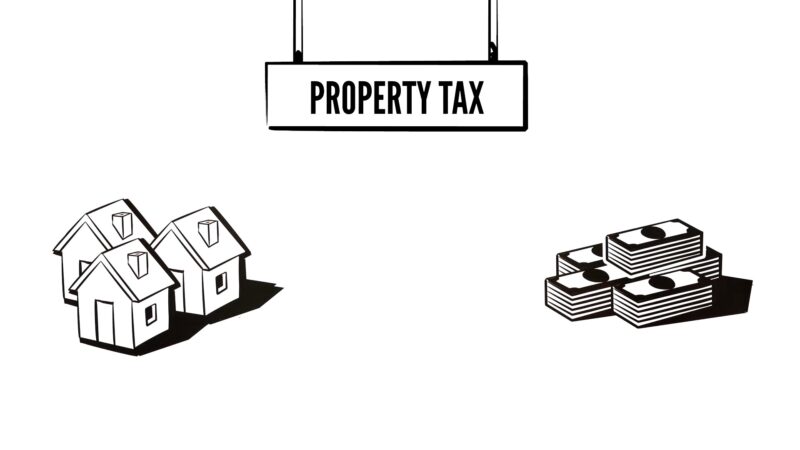Property taxes, a levy imposed by the government on the value of real estate, play a pivotal role in funding public services like education, infrastructure, and law enforcement. When it comes to land contracts, a common question arises: Who bears the responsibility for these taxes?
Today, I will address the details of property tax obligations in land contracts, offering valuable insights for both buyers and sellers.
Key Takeaways
- Buyer’s Responsibility for Taxes: In a land contract, the buyer is generally responsible for paying property taxes, even though the legal title remains with the seller until the final payment.
- Importance of Contract Clarity: It’s essential to include clear provisions regarding property tax payments in the land contract to avoid misunderstandings and ensure compliance from both parties.
- Risk of Non-Payment: Failure to pay property taxes can lead to serious consequences, such as tax liens or foreclosure, affecting both the buyer and the seller.
- Professional Guidance Recommended: Consulting with real estate professionals or attorneys is advisable to navigate the complexities of land contracts and understand state-specific laws.
- Flexibility and Accessibility of Land Contracts: Land contracts offer a flexible path to homeownership, especially for those who may not qualify for traditional financing, but come with important responsibilities including property tax payments.
The Basics of a Land Contract

A land contract is a financial agreement where the buyer makes installment payments directly to the seller for the purchase of a property. Unlike traditional mortgages offered by financial institutions, land contracts provide an alternative path to homeownership, especially beneficial for those who may not qualify for standard financing methods.
Key Characteristics
- The buyer pays the seller in installments
- The legal title remains with the seller until the final payment
- The buyer assumes possession and control of the property from the start
- A balloon payment often concludes the contract
Who Bears the Property Tax Burden?

The Buyer’s Responsibility
In a land contract, the buyer is generally accountable for the property taxes, despite the seller holding the legal title until the contract’s culmination. This responsibility extends to:
- Paying Property Taxes: The buyer ensures the timely payment of property taxes to the government.
- Additional Financial Obligations: These include home insurance premiums and maintenance costs.
The Seller’s Interest
The seller, although not directly responsible for paying taxes, has a vested interest in ensuring that the buyer fulfills this obligation. Failure to pay property taxes can result in complications, such as tax liens, which might hinder the smooth transfer of the title upon the contract’s completion.
How Are Property Taxes Handled in Land Contracts?

Payment Methods
Property tax payments in a land contract can be managed in two ways:
- Direct Payment: The buyer pays the property taxes directly to the taxing authority.
- Escrow Account: Taxes are paid into an escrow account managed by the seller or a third party, ensuring that funds are available for tax payments.
Property Tax Provisions in the Contract
It’s crucial to explicitly include property tax provisions in the land contract to avoid misunderstandings. These provisions should detail the payment process, timelines, and consequences of non-payment.
What Happens If Property Taxes Are Not Paid?
Non-payment of property taxes in a land contract can lead to severe consequences:
- Tax Liens: The government may place a lien on the property for unpaid taxes, leading to foreclosure.
- Risks to the Buyer: The buyer risks losing their investment and the property.
- Risks to the Seller: The seller’s interest in the property may be jeopardized, affecting the title transfer.
Conducting a Title Search and Purchasing Title Insurance
Before entering a land contract, it’s essential to conduct a title search to identify any existing liens or issues. Purchasing title insurance safeguards against future legal claims regarding property ownership.
Legal Assistance and State Laws
The Role of State Laws
Land contract laws can vary significantly by state, influencing the terms and processes involved. It’s important to understand these laws to ensure compliance and protect both parties’ interests.
Seeking Legal Help
Given the complexities and variations in land contracts, consulting with a real estate attorney or law firm is highly recommended. Legal professionals can provide clarity on property tax responsibilities and help draft a contract that is fair and legally sound.
Benefits and Responsibilities of a Land Contract

Advantages for Buyers and Sellers
- Expanded Buyer Pool: Land contracts can broaden the pool of potential buyers.
- Higher Interest Rates: Sellers might benefit from higher interest rates compared to traditional mortgages.
Responsibilities
However, these benefits come with added responsibilities, particularly if the buyer defaults. Both parties must be aware of their obligations and rights under the contract.
Why Clear Communication Matters?
Effective communication between the buyer and seller is key to a successful land contract. This ensures that both parties are fully aware of their responsibilities, especially concerning property tax payments.
By maintaining open lines of communication, potential disputes can be avoided, and any issues that arise can be addressed promptly.
Common Misconceptions
Can the Seller Pay the Property Taxes?
While the buyer is ultimately responsible for property taxes, there may be instances where the seller opts to pay them, particularly to protect their interest in the property. However, this arrangement should be clearly outlined in the land contract to prevent any confusion.
What Happens in the Case of Default?
In the event of a buyer’s default, the consequences depend on the terms of the land contract and state laws. Typically, the seller may have the right to evict the buyer and retain ownership of the property, along with any payments made.
This underlines the importance of understanding the default provisions in the contract.
Benefits of a Land Contract for Property Tax Management
Land contracts offer a unique advantage in property tax management:
- Flexibility: Buyers and sellers can negotiate terms that suit their financial situations, including how property taxes are handled.
- Accessibility: Buyers who might not qualify for traditional mortgages can still become homeowners and assume responsibility for property taxes, contributing to community funding.
Tax Lien Sales and Land Contracts

It’s essential to differentiate between tax lien sales and land contracts. A tax lien sale occurs when the government sells its claim on property taxes due to non-payment.
This is separate from a land contract but can impact the property involved in such a contract.
Key Info for Buyers and Sellers
For Buyers:
- Understand your obligation to pay property taxes.
- Ensure that the land contract clearly outlines these responsibilities.
- Consider the long-term financial implications, including the potential risk of tax liens.
For Sellers:
- Verify that the buyer is aware of and capable of fulfilling their tax obligations.
- Include explicit terms in the contract regarding property taxes.
- Stay informed about the property’s tax status to protect your interests.
FAQs
Can property tax rates change during the term of a land contract?
Yes, property tax rates can change due to adjustments by local governments or changes in property assessments. Buyers should be prepared for potential increases in their tax liabilities over the duration of the land contract.
Is it possible to include a clause in the land contract for tax reassessments?
Yes, a clause can be included to address how tax reassessments affect the property’s value and subsequently the tax amount will be handled. This helps in setting clear expectations for both parties.
What if the buyer overpays property taxes due to an escrow miscalculation?
If there is an overpayment of property taxes from an escrow account, the excess amount is typically refunded to the buyer or credited towards future tax payments.
Are there any tax benefits for the seller in a land contract?
The seller might benefit from certain tax advantages, such as installment sale treatment, potentially allowing for the deferral of capital gains taxes over the period of the contract.
How does the bankruptcy of the buyer affect property tax responsibilities?
In the event of the buyer’s bankruptcy, property tax obligations may be affected based on the bankruptcy proceedings and court decisions. Legal advice is crucial in these scenarios to understand the impact on the land contract.
Can local property tax exemptions apply to buyers in a land contract?
Buyers may be eligible for local property tax exemptions (such as homestead exemptions) if they meet specific criteria set by the local tax authority. It is advisable for buyers to check with local tax offices to understand their eligibility.
Closing Thoughts
Property taxes play a critical role in land contracts, with the buyer typically bearing the responsibility for payment. However, the seller’s role in ensuring compliance cannot be understated.
By understanding the nuances of property tax obligations and seeking professional legal advice, both buyers and sellers can navigate the complexities of land contracts more effectively, leading to successful and mutually beneficial agreements.
